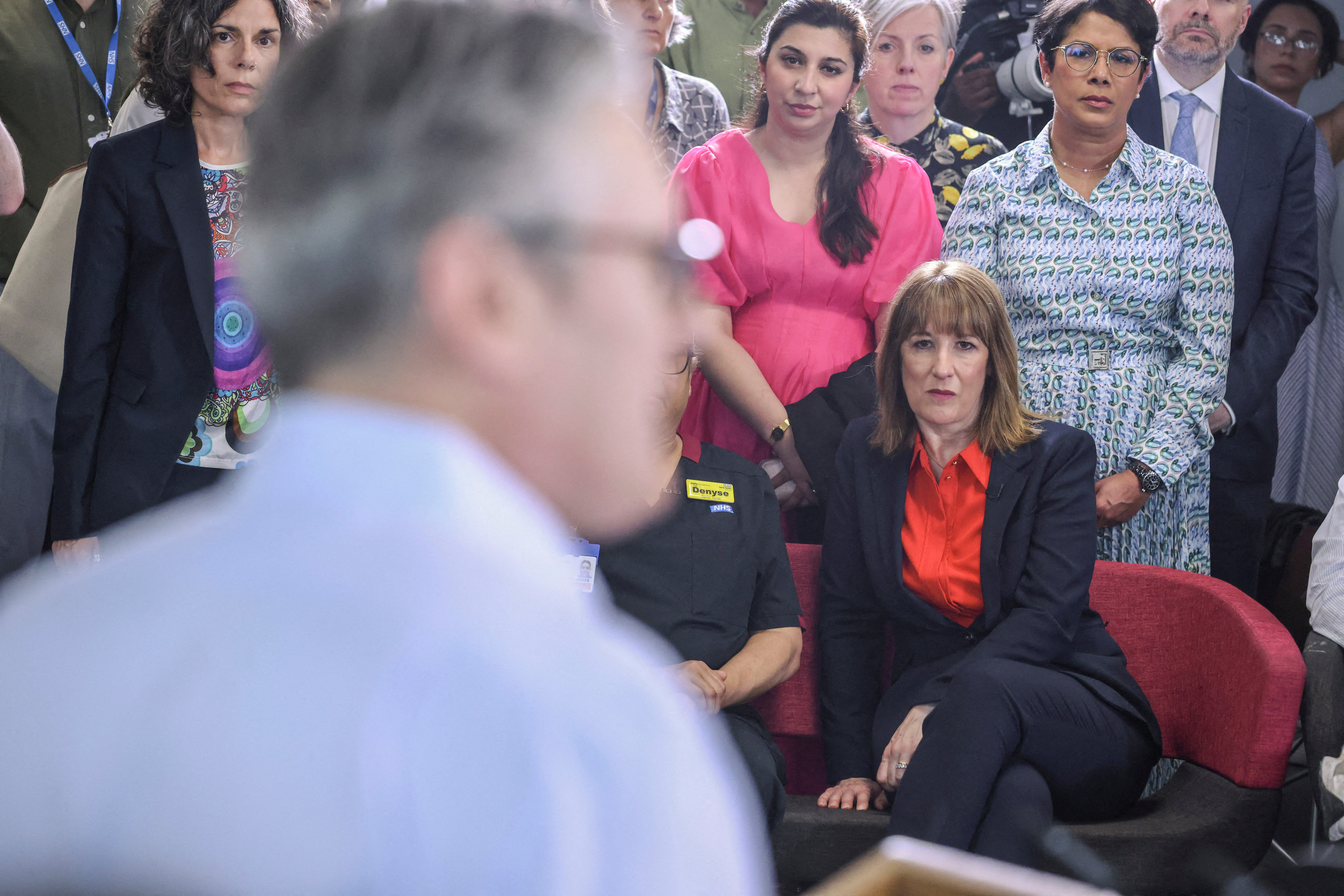Rachel Reeves revolt: a Labour government should never side with privilege at the expense of the poor and the disabled
Rachel Reeves, the UK finance minister, was tearful last Wednesday during prime minister’s questions (PMQs). She looked miserable as the prime minister rose to take questions after a U-turn over the government’s proposed law to cut benefits for the disabled.
First off the mark was the leader of the opposition, Kemi Badenoch, who sensing Rachel Reeves’ moment of weakness, pounced with a killer question: would she stay in post she enquired?
There was she claimed a £3 billion black hole in the public finances following the root and branch U-turn to placate rebellious Labour MPs the previous day and that the finance minister’s fiscal room to manoeuvre had been set to naught.
A quick witted and emotionally smart prime minister would have turned round and given his finance minister a hug and say loudly for the benefit of the financial markets “of course she will stay as finance minister” – a killer riposte to a killer question. For as became clear on the day, a tear drop on the finance minister’s cheek meant a huge drop in the stock market and the value of pound sterling.
Alas Keir Starmer is not that kind of politician. The last time he tried to be tactile was when he visited US President Trump at the White House and tried to emulate President Macron’s tactile gestures the previous day that in the case of Keir Starmer came across as totally lacking spontaneity.
A prime minister is not bound to keep a minister after pledging them full support in parliament. If the facts change and he feels impelled to replace his finance minister he could do so at will. Instead of supporting her by confirming she was safe in her job, which he did later in the day in Downing Street, he heaped praise on her – a bad sign as it is well known that excessive praise often presages the proverbial knife in the back.
PMQs is the ritual part of open government every Wednesday unique to Britain, in which the prime minister has to be able to stand up to scrutiny in public and marshal facts and figures on his finger tips and dominate the chamber with language, wit and gesture – you could not for example imagine ex US president Biden going before Congress and being questioned the way a British prime minister is questioned in parliament in UK.
Despite its obvious value as political drama, surprisingly, parliamentary proceedings were not televised in UK until 1989. That year we were able to see Margaret Thatcher 1979-90 in her prime before she was unceremoniously removed from office; and to watch live on TV her memorable resignation speech which even she acknowledged was great fun: “I am enjoying this,” she said.
John Major 1990-97, Gordon Brown 2007-10, David Cameron 2010-16 Theresa May 2016-18, Liz Truss September/October 2022 and Rishi Sunak 2022-24 – were mostly unremarkable in parliament although the numerous revolts against Theresa May were exciting.
Boris Johnson 2018-22 thought he was good at it, but he lacked gravitas and flouted a basic rule of the game that whatever you do, you must not lie to parliament. Politics is a rough old trade full of back stabbings and betrayals but parliament itself as a representative collective must always be told the truth
Tony Blair 1997-2007 was the next star performer in parliament after Thatcher in the television age, although his opponent and leader of the opposition, William Hague, was better in debate. Blair had a good turn of phrase and a sense of humour, although the most memorable moment of his time in office was the resignation speech of the late Robin Cook on March 17, 2003.
Cook resigned because he opposed invading Iraq without the authority of the UN Security Council and the support of the British people and he was right: waging war is a serious business and not a matter exclusively for the prime minister exercising the prerogative of the crown in foreign affairs.
New Labour under Tony Blair engaged in foreign wars easily, usually to keep America sweet. But historically the Labour Party has been at its best in peacetime. When World War II ended the British people returned a Labour government by a landslide to build a new Jerusalem: the welfare state, the national health service (NHS), a streamlined education system, free higher education and publicly owned essential services.
So what Keir Starmer and Rachel Reeves need to remember is that Labour is the party of the less well off in society whose needs take precedence. This was why the parliamentary party was not prepared to back welfare benefits reform that diluted the rights of the disabled and the disadvantaged.
After 14 years of governments by the rich for the rich, you would have thought that a Labour government would find it in them to protect the poor and the disadvantaged and tax those with surplus wealth to pay for extra government expenditure.
The failure of the welfare reform law to make headway was a problem for the finance minister because she boxed herself in by insisting that there would be no increases in taxation. To many in the Labour Party in and out of parliament it is difficult to understand why their own government chose to deprive the poor and the disabled of benefits instead of taxing the surplus wealth of those who would not feel any pain at all and even happily pay extra tax to avoid public squalor.
A Labour government should never side with privilege at the expense of the poor and the disabled.






Click here to change your cookie preferences